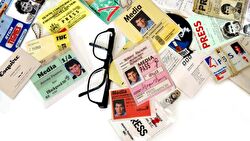
I have no idea whether the stories about Donald Trump and Russia are true. But I do know that if I had paid for the so-called "intelligence assessments" printed by BuzzFeed, I would be demanding my money back.
In its early days there used to be a saying about the internet: one-third commerce, one-third pornography, one-third nuttiness. The proportions may have changed a little since (at a guess, more commerce, a bit less pornography), but conspiracy theories and quack remedies are as prominent as ever.
BuzzFeed purports to be something else. It justified making public the so-called dossiers, “so that Americans can make up their own minds about the allegations”. No decent journalist should ever argue in favour of suppressing news simply because it is embarrassing or inconvenient for a powerful interest. Our job is disclosure.
But disclosure is not the same as the repetition of tittle-tattle. It will not do to say that some of the information being published may be untrue or “unverified”. If it is unverified, it’s just gossip.
There have always been tales which never made it into the mainstream media.
The moralising minister who poses with adoring family in election literature, while using rent boys in central London, or the cabinet minister said to become falling-down drunk.
The fact that such things were common knowledge inside the Westminster fish-tank yet kept from the public was one of the faults of the old media that new media promised to rectify. But just because something can be made public does not mean it should be. The particular trouble with the internet is that it appears to accord equal status to the reasoned and the crazy.
People follow those who tell them what they want to hear. Some even register an interest in a particular Twitter feed merely to show the rest of the world the sort of person they are. The barking mad can find endless echoing howls: in cyber space everyone can hear you scream. And the existence of an audience eggs the purveyor of conspiracy theories on to increasingly rococo conclusions. You don’t have a convenient fact to bolster your argument? Make it up.
Scuttlebutt is not Socratic dialogue. For sure, there is a delicious irony in Mr Trump becoming the possible victim of fake news. He is gloriously indifferent to whether things are true or not. What else are we to make of his decision to appoint Steve Bannon, the executive chairman of the rightwing website Brietbart, to his team?
Mr Trump’s fuddle-mouthed outrage may be comical. (Never trust a man whose essential communication skills are monosyllables and exclamation marks). But perhaps he is right: grotesques do not necessarily behave grotesquely 24/7.
Richard Nixon used to imagine his political enemies sitting on the toilet, and the intimate behaviour of the famous is always entertaining.
But where is the evidence for the salacious allegations about Mr Trump? And Mr Trump is right that what he calls “the liberal media” (everything from the big name newspapers to the BBC) is dominated by people who look upon him as an ignorant, vulgar oik. Their nose-holding disdain is evident on every page. But the US’s bizarre electoral system has sent him on his way to the Oval Office and even the most well meaning of us ought to respect what passes for the will of the people.
Once upon a time, editors banged tables, drained whisky glasses and drew heavily on cigarettes as they worried whether or not the story presented by some ambitious reporter “stood up”. In a world of supposition and innuendo, these are quaint concerns. Fake news makes them utterly redundant.
It should not need saying that whether something is true or not does matter. But that is where we are. Old-fashioned media everywhere are finding themselves pushed to the margins of financial implosion because so few people appreciate that finding things out costs money. We are well into a race against time. More and more people are unwilling to pay for proper journalism. We will only know what we have lost once it’s gone.
Article courtesy of The Financial Times. Original found here.


